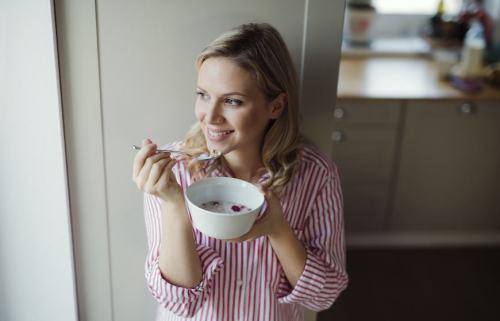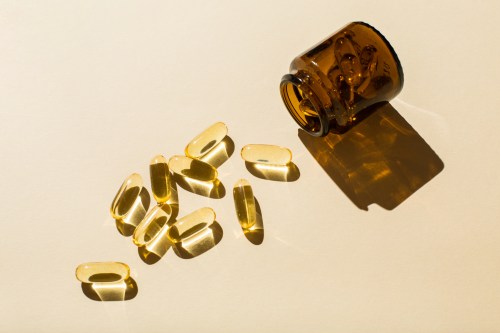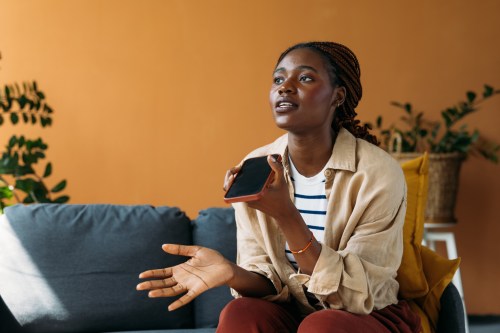Our editors independently select these products. Making a purchase through our links may earn Well+Good a commission
A snake slithering into your dreams might make your skin crawl, but your serpent friend could be infiltrating your dream life for a reason. Dreams about snakes may be your subconscious mind’s way of sending you a message that's not necessarily bad, but is meaningful. That's because, while snakes often get a bad rap, they can also be powerful symbols of metamorphosis—that's why 2025's Year of the Wood Snake in Chinese astrology is all about transformation. Because of the snake's power across cultures, astrologer and dream interpreter Stephanie Gailing, author of The Complete Book of Dreams, says dreams about snakes are a “big deal.”
What a dream about snakes might mean for you
Many people might be quick to write off a snake dream as a bad dream, perhaps due to the serpent’s reputation, but it may also be a good dream that points to something positive in your life, like personal growth. Indeed, there isn’t one way to interpret a snake dream; the meaning of a snake dream will largely depend on the thoughts and feelings of the dreamer and the context of the dream itself.
To figure out what a snake dream might mean for you, Gailing suggests a two-pronged approach. First, consider how your dream made you feel. For instance, were you afraid or fascinated by the sight of a snake in your dream? Your feelings may also be influenced by how you perceive snakes in your waking life. If you have a negative association with snakes, a dream about snakes may feel negative, too. Conversely, someone who views snakes in a positive light is likely to have different dreams about them. Dreams about snakes are less often about snakes themselves, but your own relationship with the serpents—and figuring out your own thoughts and feelings about snakes can help you land on a snake dream meaning that’s specific to you.
Secondly, you’ll want to look at the context of your dream. According to professional dream analyst Lauri Loewenberg, author of Dream on It, the context of a dream, regardless of its theme, is the most important factor in decoding its message. “The biggest thing as to what the snake will mean is the context of the dream,” she says. You might want to think about what the snake is doing, for instance, or what it looks like and whether it’s venomous—all details that make a difference in the interpretation of a dream.
8 common dreams about snakes and what they mean
Snakes may present themselves in our dreams in various ways, and each dream will have its own unique message for the dreamer.
“Your dreams are your own messages from you to you in order to improve you, so in order for you to be able to figure out what you’re telling yourself through the dream, always pay attention to what’s said in the dream, or even more importantly, what you’re thinking in the dream,” says Loewenberg.
To start, here are eight common dreams about snakes and what they might mean, according to Loewenberg and Gailing.
1. If a snake is shedding its skin
If you have a dream about a snake shedding its skin, it could signal a personal transformation. “If the snake is shedding its skin, this would likely be about you shedding some old beliefs or old attitudes to reveal the new, shinier, sleeker version of you,” says Loewenberg. It could also be a sign that you’re afraid of change, particularly if you perceive the serpent as scary, says Gailing.
2. If you see a snake on a walk
Dreaming about a snake on a walk could imply that there’s something in your life that you’ve been ignoring, says Gailing. Depending on the person, it might be a wake-up call to face an unresolved fear, or an impending conflict or issue that you’ve been avoiding dealing with, she says. The sight of the snake might be a sign that you need to address it.
3. If you see a dormant snake
A dormant snake can symbolize something or someone in your life that you perceive as a threat, says Loewenberg. Knowing that a snake is lurking nearby can set anyone on edge, so consider what might be causing you a similar feeling of stress in your waking life. It’s not yet as urgent as a snake attacking you, but it’s something to keep an eye on.
4. If a snake is attacking you
“If a snake is attacking you, the action of being attacked will correlate to somewhere in your life where you’re feeling attacked,” says Loewenberg, and the snake could potentially symbolize that situation. She adds that if the snake (or any creature, for that matter) is biting you, it might be that you were on the receiving end of someone’s critical or “biting” remarks.
5. If a snake is attacking someone
“It is very possible that if you’re witnessing a snake attack, it could be that there is someone around you whom you’re witnessing being in a difficult situation with someone else,” says Loewenberg. If that dream is accompanied by feelings of concern rather than fear, it could reflect your worries about someone that you care deeply about, like a family member or a friend.
6. If you see a snake in your bedroom
If you dream about a snake in your bedroom and it leaves you intrigued rather than distressed, it may be reflective of your “creative life force or sexuality,” says Gailing. It could be that you’re dedicating too much creativity to an aspect of your life, or you lack creativity. In terms of your sexuality, it might suggest that you’re being dishonest about your sexuality or you are uncertain as to whether a current situation is sexually satisfying.
7. If you see multiple snakes
“If there are many snakes in your dream, it could mean that you’re in a toxic environment or that there are many toxic elements around you,” says Loewenberg. The snakes symbolize the toxicity, so as you interpret your dream, consider if you’re in a current toxic situation in real life. If you are, it might be your subconscious trying to tell you to free yourself from whatever is causing you to feel uncomfortable or unsafe.
8. If you keep seeing snakes in your dreams
Whether you’re having recurring dreams about a snake or something else, your subconscious is telling you to pay more attention, says Gailing. Loewenberg previously told Well+Good that dreams are often linked to an unresolved point of conflict or tension or an unhelpful behavior pattern in a person’s life. As such, it might be a telltale sign that you need to face the situation that is causing you distress or break old patterns of behavior.
5 other possible meanings of snake dreams
If your specific dreams about snakes don’t fit into any of the above dream scenarios, your dream might signify something else altogether. Below, Gailing and Loewenberg outline four overarching themes that are typically linked to snake dreams.
1. Healing
“Snakes are an incredible symbol of healing,” says Gailing, who calls to mind the caduceus staff, which has long been a popular symbol of medicine. A snake can symbolize physical or emotional healing that’s beginning to take place, says Loewenberg. In your dream, this could manifest as a snake biting on a specific part of your body.
2. Temptation
Snakes have earned a devilish reputation due to their associations with the fall of man in the Bible. “Think of the snake tempting Eve to eat the apple,” says Gailing, an association that instigated the idea of the snake as a “creator of chaos.” Consider if you’re purposely keeping a certain temptation at arm’s length or you’re protecting yourself from your own urges in your waking life.
3. Creative life force
“In many cultures, snakes are a symbol of … creative life force," says Gailing. The Ancient Greeks, Egyptians, and Native Americans, for instance, view snakes as symbols of fertility, rebirth, renewal, and immortality. “For some people, the snake can represent a spiritual shift,” says Loewenberg, such as in the common dream of the snake shedding its skin, which could symbolize “the deeper and more spiritual self.”
4. Factors outside your control
Snakes are mysterious creatures—they are secretive and often lie out of sight, and though not all snakes are harmful, some of them are venomous. Their mystery may give rise to intrigue, but for many people, it might bring fear—and our unknowingness of the serpent may symbolize factors outside our control, says Gailing. With this in mind, it could reflect worries about a lack of control in waking life.
5. A toxic force in your life
“In my many years of research and experience as a dream analyst, the most common thing that causes a snake dream is connected to someone in the dreamer’s life that is toxic,” says Loewenberg. The snake, she says, can be symbolic of “someone who exhibits low down dirty behavior,” she says, so consider your thoughts and the context of the dream to figure out if there’s a person in your life who is making you uncomfortable or unsafe.
What to do when you dream about snakes
“As with any dream, it’s important to pay attention to it and unpack it,” says Loewenberg, in order to understand its message. “You want to compare it to what’s going on in your life right now, or particularly, what went on in your life the day before the dream because your dreams are a continuation of your thought process from the previous day,” she says. Again, since the symbol of the snake will mostly depend on your personal associations with the serpent, consider how this type of dream applies to your unique situation so you can land on an interpretation that is specific to you.
Get all the latest in wellness, trends, food, fitness, beauty, and more delivered right to your inbox.
Got it, you've been added to our email list.











